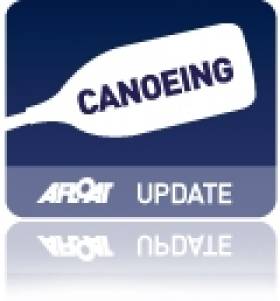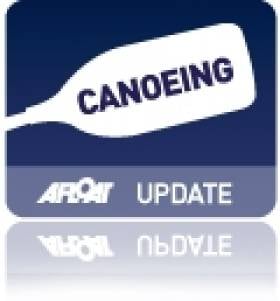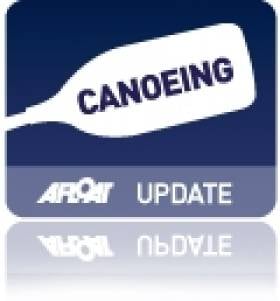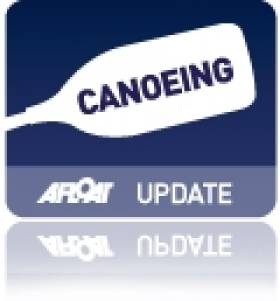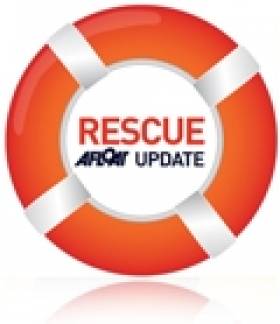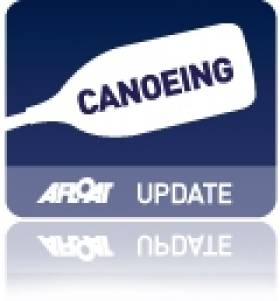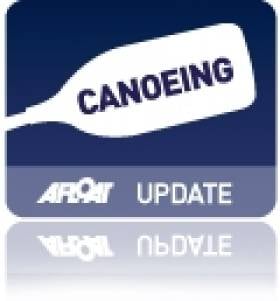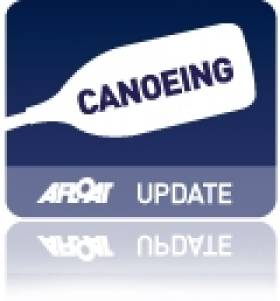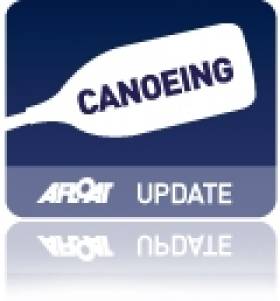Displaying items by tag: canoeing
Aquatic Sporting Bodies Move To New Irish Sport HQ
#IrishSport - Ireland's national bodies for angling, canoeing and swimming have moved into their new home on the National Sports Campus.
The new Irish Sport HQ in Blanchardstown, west Dublin was officially opened by Taoiseach Enda Kenny on Wednesday 29 May.
Among the 19 sporting bodies that have followed the FAI in relocating their headquarters to the new centre are the Angling Council of Ireland, Swim Ireland and Canoeing Ireland.
Opening the facility, the Taoiseach said: "I'm delighted that significant progress has been made in the development of the National Sport Campus over the past 12 months.
"The opening of the Irish Sport HQ and the arrival of 19 national governing bodies is a major step in the development of the campus. Today's milestone will also help foster the sense of community and co-operation which I know already exists in Irish sport."
Minister for Sport Leo Varadkar also expressed his delight at being present for the opening of the Irish Sport HQ.
"The campus is now well on the way to being a national training centre for sport," he said. "It shows what can be achieved when you work on a realistic scale, within realistic budgets, in partnership with the sporting bodies."
Canoeing Ireland Sets Off On Road To Rio Paralympics
#Canoeing - With para-canoeing set to join the list of sports at the Rio Paralympics in 2016, Canoeing Ireland says it is keen to develop the sport and identify and support athletes with hopes of representing Ireland.
That was the message from Canoeing Ireland's Olympic Sprint chairman Eamon Fleming, who was on hand to thank Paralympics Ireland for accepting Canoeing Ireland into the Paralympics family at an event last week.
"We are very excited to be a part of the Paralympics family and see great potential in growing para-canoeing in the future," he said.
According to Fleming, he and Ireland's canoe sports governing body "were inspired to see para-canoeist Patrick O'Leary finished second in the men's 200m event in very tough conditions" at the first sprint regatta of the year in Nottingham last weekend.
Also now paddling his own canoe for Rio is two-time rowing Paralympian Kevin Du Toit, who is currently training out of Richmond Canoe Club in London – a home away from home for Irish paddlers over the years.
Karl Dunne, CEO of Canoeing Ireland, said: "We are delighted to have had instant success with Patrick's result in Nottingham, He will now compete at the European Championships in Portugal this summer.
"Canoeing Ireland look forward to working with Liam and his team on the road to Rio."
Sligo Kayak Training Courses For Anyone New To Canoes
#Kayaking - Beginners are more than welcome to the Sligo Kayak Club as it prepares to host a series of training courses for anyone new to canoes this spring and summer, according to the Leitrim Observer.
This Level 2 training course will provide prospective kayakers with the basic skills and safety practices they need to get paddling on the water.
And on completion of the course, participants can become full members of the Sligo Kayak Club and avail of further training opportunities.
The €80 course - the first of which begins next Tuesday 9 April - will run for two hours every Tuesday evening over six weeks, with a Level 2 skills assessment on the final week. Gear rental is covered by the price (except for wetsuits and suitable footwear).
The Leitrim Observer has more on the story HERE.
Paddlefest In Waterford & Kilkenny Next Month
#Canoeing - Canoeing Ireland is teaming up with the Canoe Association of Northern Ireland to host a joint Paddlefest in Waterford and Kilkenny on 6-7 April.
The conference centre at the HUB in Cillin Hill, outside Kilkenny, will be the centre of events for the weekend that Waterford Today says will feature competitions, workshops and "awe-inspiring displays" for canoeing, kayaking and paddling experts and novices alike.
Action on the waterways is open to all age groups and abilities, though with a focus on intermediate and advanced paddling skills.
Those taking part will be able to sign up for four workshops over the weekend hosted by top instructors and coaches.
More details of the weekend are available on the Canoeing Ireland website HERE. Registrations are open till this Friday 15 March so be sure not to miss out!
Larne Women To Paddle The Ban for Cancer Charity
#Canoeing - Larne women will be paddling the Bann this April all in the aid of a very good cause.
The 24-strong group from local fitness club BeFit, going by the title of the BeFit Challengers, will take to the water on 20 April for the start of a two-day canoeing expedition, along the River Bann and out to the Atlantic.
As the Larne Times reports, these ladies hope the challenge - and an epic mountain cycling event later in the year - will raise funds for Cancer Focus Northern Ireland.
BeFit owner Andrea Kernohan said: “I like to set the BeFit girls a challenge every so often, so that they have a fitness gold to work towards. I thought these Cancer Focus challenge events were perfect.
"Sadly this cause is close to mine and the girls’ hearts as so many people have been affected by cancer in one way or another.”
The Larne Times has more on the story HERE.
Galway Lifeguard Praised for Canoe Rescue
#RESCUE - A lifeguard at Galway's Leisureland has been praised for his part in the rescue of a canoeist who got into difficulty in the water off Salthill, as The Connacht Sentinel reports.
Ian Brennan raced to the water after a woman looking across from the Galway Bay Hotel spotted the man in trouble a few hundred yards from the shore and raised the alarm.
The Leisureland duty manager, a former competitive swimmer with experience in water safety, said he didn't think twice about the incident.
"I grabbed a ring buoy, ran across the road, stripped down to my boxers and swam to the person," he said.
Brennan managed to swim ashore with the canoeist as Galway's RNLI lifeboat was being dispatched to the scene.
He also commended the lifeboat crew "for the speed at which they launched" and for their quick treatment of the canoeist for hypothermia.
Despite the applause he received from onlookers once back on land, Brennan described his actions as "no big deal".
The Connacht Sentinel has more on the story HERE.
Jenny Egan Places 16th at Canoe Marathon World Championships
# CANOEING: Ireland’s two senior competitors at the Canoe Marathon World Championships finished in the top 20 in their classes in Rome today. In the women’s K1, Jenny Egan had a frustrating run which included a capsize and was eventually placed 16th. This was just over seven minutes behind Renata Csay of Hungary. In the men’s K1, Peter Egan was 17th. The event was won by Spain’s Ivan Alonso.
Canoe Marathon World Championships – Day Two (Irish interest)
Men
K1 Senior: 1 Spain (I Alonso) 2 hours 11 mins 43.120 seconds; 17 P Egan 2:16:28.870.
Women
K1 Senior: 1 Hungary (R Csay) 2 hours 1 minute 2.710 seconds; 16 J Egan 2:08:05.460
Heurteau Ranked 10th in 2012 Canoe Slalom World Cup Standings
#CANOEING - The Irish Times reports that Ciaran Heurteau is 10th in the World Cup standings for 2012 in the K1 slalom.
The Irish paddler, raised in Paris, has competed in all five Canoe Slalom World Cup events this year, with his best result of 5th place at Pau in France in mid summer, as previously reported on Afloat.ie.
More recently the 25-year-old finished 15th at last weekend's event in Bratislava, Slovakia.
Heurteau, who was beaten to a spot at the London Olympics by Eoin Rheinisch, is at 47th place in the latest International Canoe Federation (ICF) world rankings, which are decided from results over a two-year period.
He stands nine places ahead of Rheinisch, who lost out on a place in K1 final in London after a disastrous 50-second time penalty in his semi-final run.
Canoe Challengers Promise 'Irish Deliverance' for Charity
#CANOEING - A team of hardy souls from Leamington Spa in England will attempt to paddle their way across the island of Ireland for charity from next weekend.
The Leamington Courier reports on the 13-strong 'Irish Deliverance' team, which will set out on five Canadian canoes from the Giant's Causeway on the Antrim coast next Friday 24 August.
They will be following a route through Lough Neagh and Lough Erne and across the border along the River Shannon all the way to Limerick, which they hope to reach by Sunday 2 September.
Team leader Jon Devaney says the group has been practising for months for the 372-mile challenge, aiming to raise money for the Warwickshire and Northamptonshire Air Ambulance.
And it's not the first time he's embarked on such an epic voyage - with Devaney, his brother David and friends completing the 10,000-mile Mongol Rally last year, and raising more than £7,000 (€8,900) for the air ambulance service in the process.
The Leamington Courier has more on the story HERE.
Blind Canoeist to Paddle Length of River Shannon for Charity
#canoe – A blind journalist, canoeist and past pupil at ChildVision's national education centre for blind children will paddle the River Shannon in aid of ChildVision this weekend. Wesley Bourke and his paddling partner Aisa Cooper will take on the 360km (225 mile) feat from August 16th-19th, covering 100km per day for the first three days. The challenge will begin at Dowra in County Cavan and cover the counties of Leitrim, Roscommon, Longford, Offaly, Westmeath, Galway, Clare and Tipperary as they make their way to Limerick.
"No blind person has ever done this before but I'm confident we'll not only complete the challenge, but we'll get it done on schedule," said Bourke. "And ChildVision really deserves every support you can give them, and I hope everyone along the route will be generous in supporting them, and us, too."
Wesley was diagnosed with Leber's hereditary optic neuropathy at a eighteen while he was completing an apprenticeship with the Air Corp, leaving him with less than 15% vision. He attended ChildVision's integrated post-primary school, Pobal Scoil Rosmini, to complete his Leaving Certificate. Graduating in 1998 Wesley went on to study International relations at the University of Hull and Kings College London. He now works as a journalist at An Cosantóir, the Defence Forces magazine.
An adventure enthusiast, Wesley recently completed the Devizes – Westminster International Canoeing Marathon with Aisa, paddling over 200km in a two man kayak in preparation for this event. Wesley and Aisa are members of the Celbridge Paddlers Canoe Club, Co. Kildare.
The pair will take to the Shannon in a K2 kayak on August 16th to raise funds for ChildVision, Ireland's only national education centre for blind children. ChildVision works with over 800 families throughout the country providing educational resources and facilities for blind children.



























